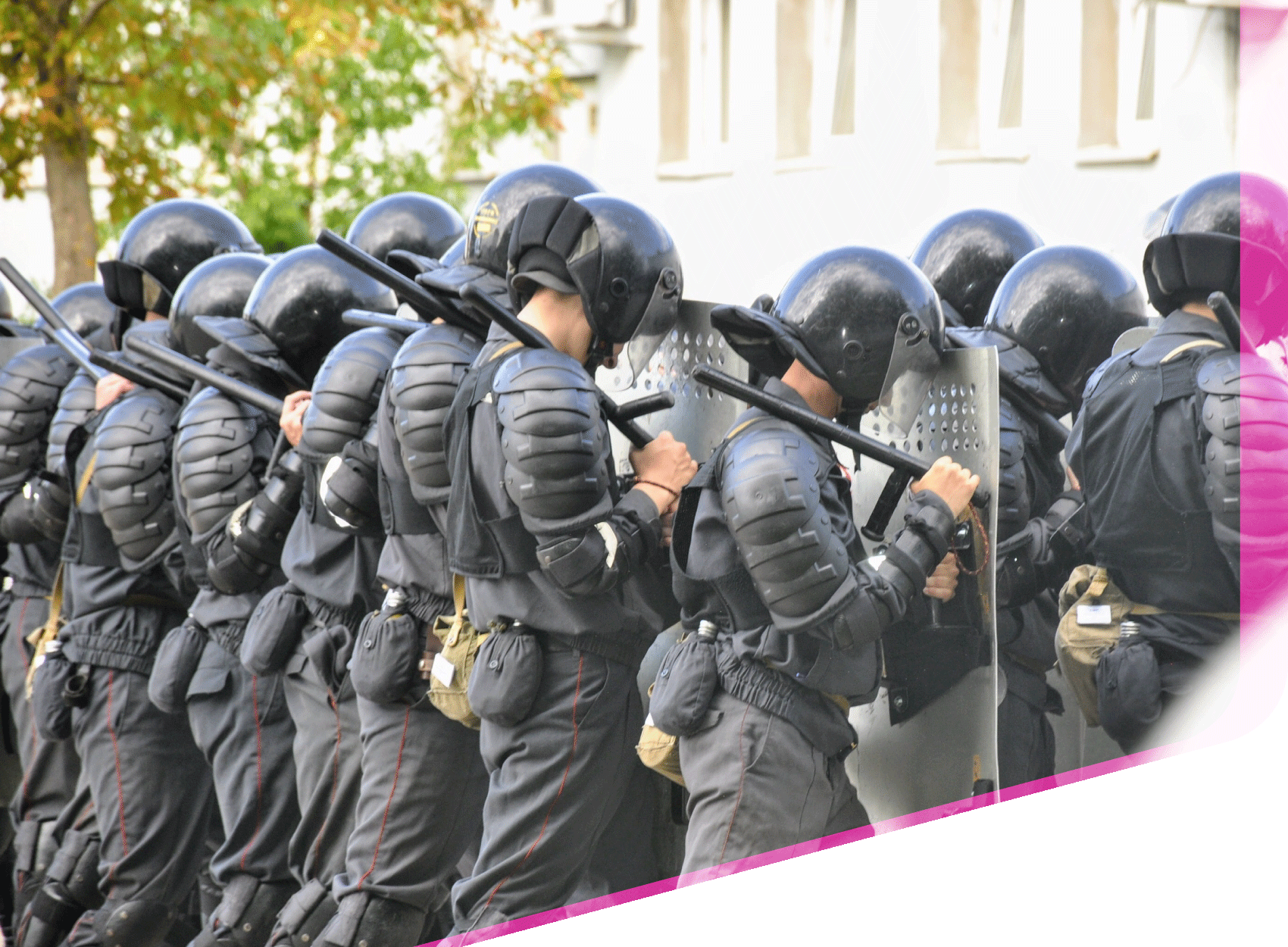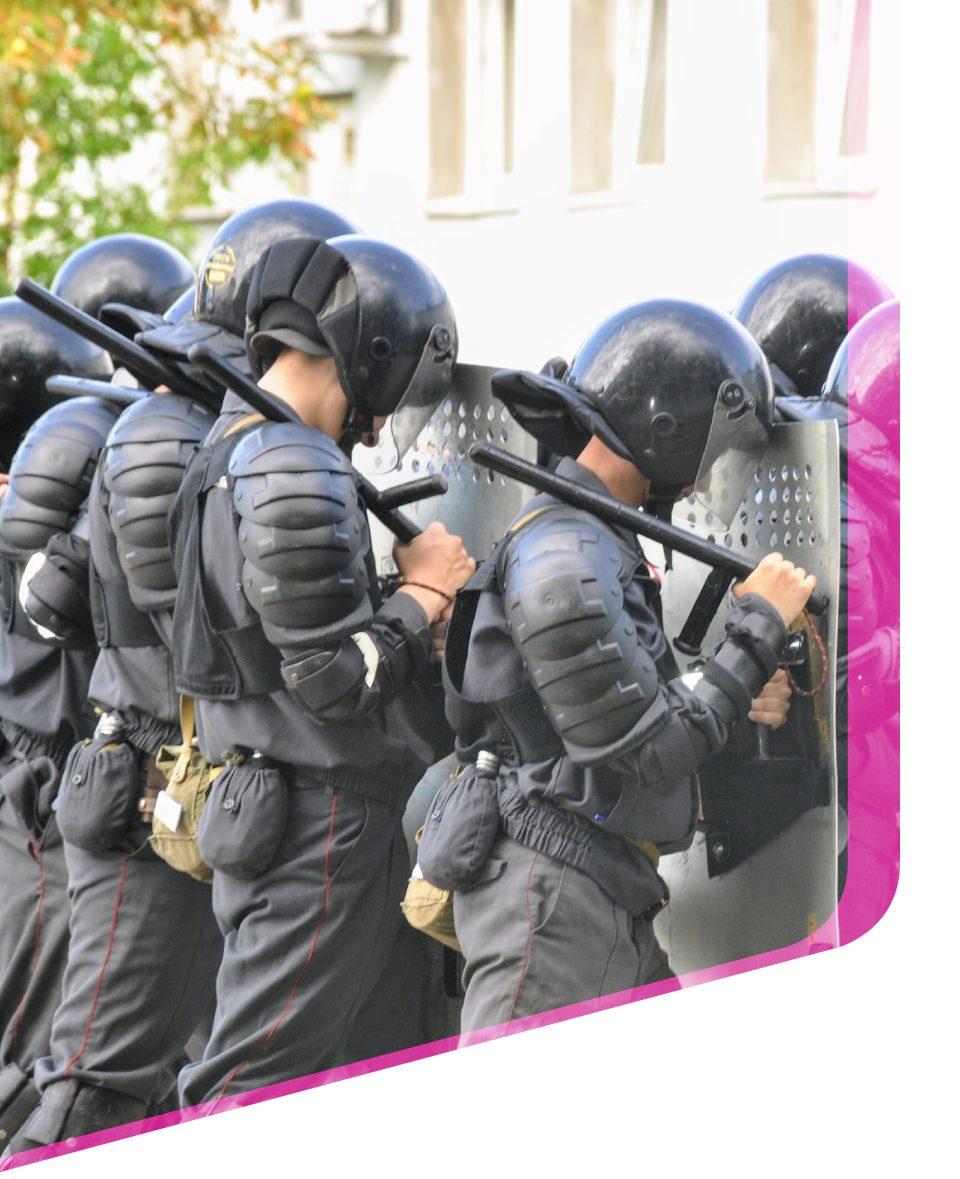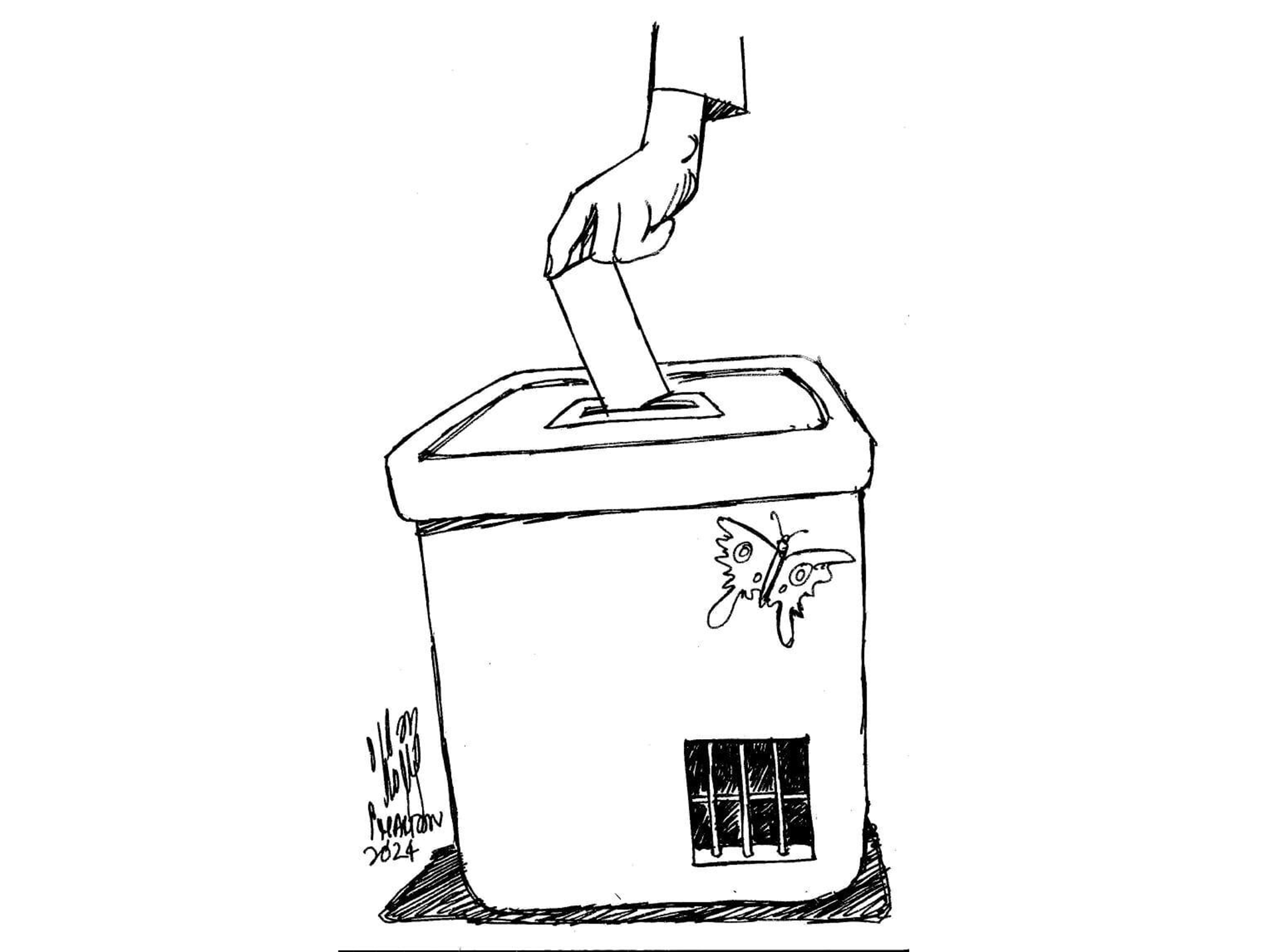
Belarus
Belarus
Belarus
Four Years After Major Protests
Four Years After Major Protests
Four Years After Major Protests
By Marta Petrowskaja
By Marta Petrowskaja
By Marta Petrowskaja

Belarus
Four Years After Major Protests:
By Marta Petrowskaja
In 2021, the FNF conducted an interview with the sister of Maria Kalesnikava, Tatsiana Khomich.
What Is Happening in Belarus?
434 days - that is how long there has been no information about the former banker Viktar Babaryka. He was arrested two months before the 2020 presidential elections in Belarus, in which he intended to run as a candidate against Lukashenko. Later, in the summer of 2021, Babaryka was sentenced to 14 years in prison. In April 2023, it was reported that he urgently needed to be transferred from the penal colony to a hospital in Navapolatsk.
Unofficial information suggested that Viktar Babaryka was severely beaten before being admitted to the hospital. This was unknown to the public, his lawyers, or close relatives.
The musician and pro-democracy activist Maria Kalesnikava, the lawyer Maksim Znak, the politician Mikalai Statkevich, and the blogger Ihar Losik are in the same situation - they are completely cut off from the outside world. Human rights activists refer to their situation as an incommunicado-regime, which is considered a severe human rights violation under international law, along with enforced disappearance.
According to the human rights organization "Viasna," there are currently 1,410 political prisoners in Belarusian prisons. More than 1,200 individuals have already served their sentences in full. In total, at least 40,000 people have been imprisoned since 2020. Five have died in custody.
Almost four years have passed since the last presidential elections, but the repression against Belarusians who disagree with Lukashenko's regime continues.
Every day, human rights activists record new arrests. Belarusians are being imprisoned for reading independent media, posting comments on social media networks, donating to Belarusian volunteers in Ukraine, participating in protests four years ago, and supporting the families of political prisoners. Furthermore, the extent of these repressions is currently difficult to estimate: relatives of detainees are afraid to provide information to human rights activists, as Lukashenko's regime has criminalized any communication with them.
Conditions in the prisons remain harsh. Those under administrative detention for actions such as reading opposition media can go without a change of clothes, hygiene products, walks, or showers for 15 days. In the prison cells, they are forced to sleep on the floor or on beds without mattresses and bedding, with the lights on 24 hours a day. In the penal colony, inmates must work eight hours a day, six days a week. For their work, they receive 10-15 Belarusian rubles per month, which is about 3-5 euros.
Almost four years have passed since the last presidential elections, but the repression against Belarusians who disagree with Lukashenko's regime continues.
Every day, human rights activists record new arrests. Belarusians are being imprisoned for reading independent media, posting comments on social media networks, donating to Belarusian volunteers in Ukraine, participating in protests four years ago, and supporting the families of political prisoners. Furthermore, the extent of these repressions is currently difficult to estimate: relatives of detainees are afraid to provide information to human rights activists, as Lukashenko's regime has criminalized any communication with them.

Conditions in the prisons remain harsh. Those under administrative detention for actions such as reading opposition media can go without a change of clothes, hygiene products, walks, or showers for 15 days. In the prison cells, they are forced to sleep on the floor or on beds without mattresses and bedding, with the lights on 24 hours a day. In the penal colony, inmates must work eight hours a day, six days a week. For their work, they receive 10-15 Belarusian rubles per month, which is about 3-5 euros.
Almost all political prisoners are automatically declared "extremists." This further restricts the already limited range of activities allowed in the colony.
Due to their so-called "extremist" status, prisoners cannot communicate with their relatives or receive money transfers or packages. They are forced to wear yellow patches on their jackets, and for any "offense," they can be placed in solitary confinement - a cramped, cold, dark room with only a metal stool and a sleeping plank.
In 2020, Belarusian authorities mainly punished those who disagreed with Lukashenko's rule with up to three years in prison. Today, however, "sentences" in most such cases start at five years in a penal colony. For instance, in June 2024, a family from Homel was sentenced to 8 to 11 years in prison for photographing the movement of Russian military equipment through Belarus in 2022. In May, a businessman was sentenced to nine years in prison for donating money to victims of security force violence in August 2020. These are just two examples among thousands.
When political prisoners fully serve their sentences, it does not guarantee their release. It has become common practice to extend their prison terms, allegedly for "malicious disobedience to the colony administration." Activist Zmitser Dashkevich was not released a year ago for this reason, although serving his sentence, and was recently charged again under the same article.
Almost all political prisoners are automatically declared "extremists." This further restricts the already limited range of activities allowed in the colony.
In the summer of 2022, Belarus introduced the so-called "in absentia courts," meaning a person can be convicted even if they are not in the country. Belarusian investigators have already initiated at least 108 such cases. For example, Sviatlana Tsikhanouskaya's advisor, Franak Viačorka, was sentenced to 20 years in prison, and opposition politician Pavel Latushka to 18 years. Although they are abroad, the convicted individuals have their property in Belarus confiscated as fines or compensation for "damage."
Since September 2023, Belarusians abroad can no longer apply for a new passport at diplomatic missions and must travel to Belarus to do so. Those for whom this is too dangerous due to the threat of persecution are left without the crucial document that allows them to continue their life abroad. In the worst case, they are forced to take significant risks and travel to Belarus for a few days.
In the past four years, repression in Belarus has not subsided but has intensified, especially as it has fallen out of the international community's focus amid Russia's war in Ukraine. Human rights activists fear that in 2025, with the new presidential elections in Belarus, the waves of repression could become even stronger.
Belarus
